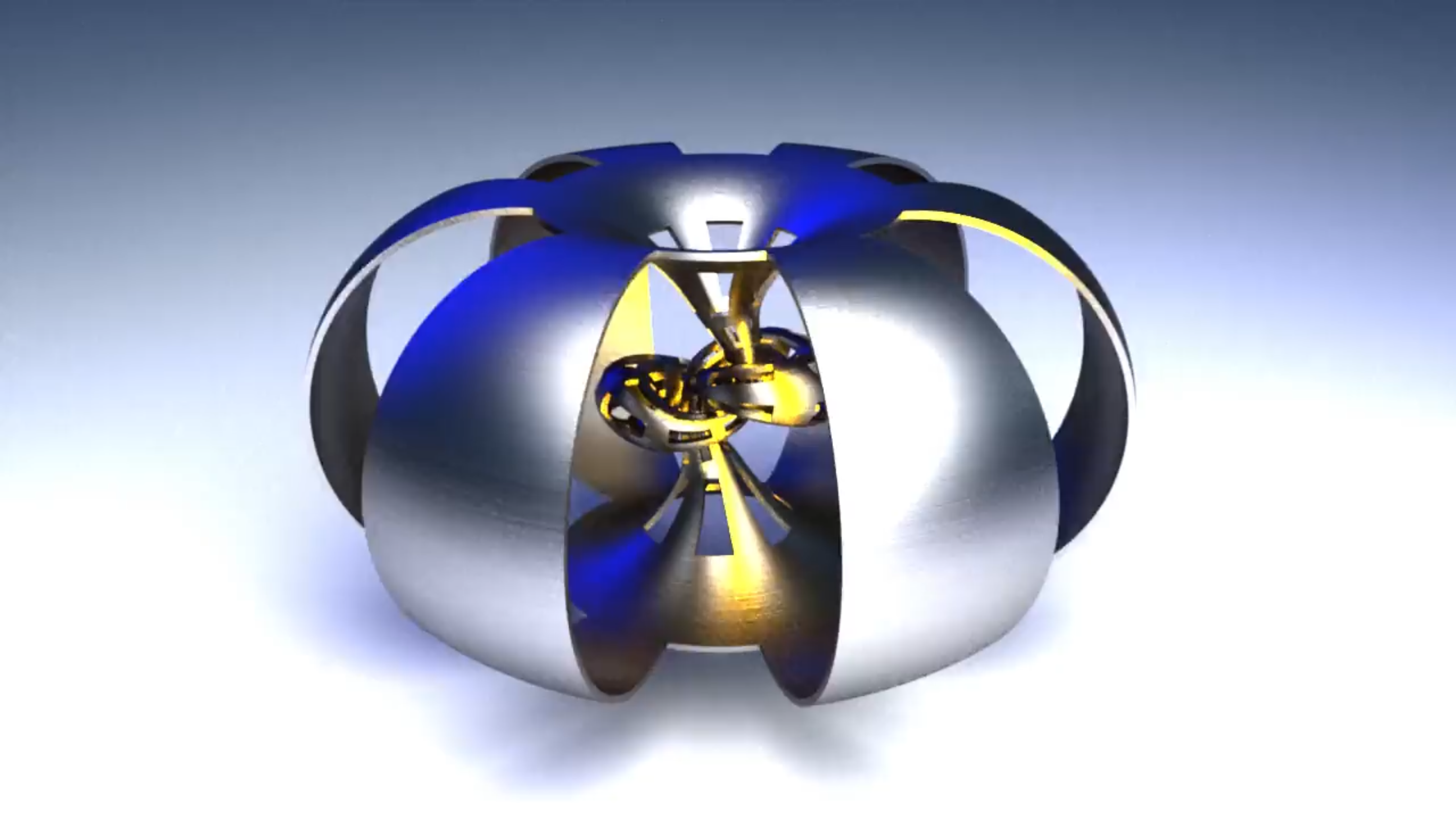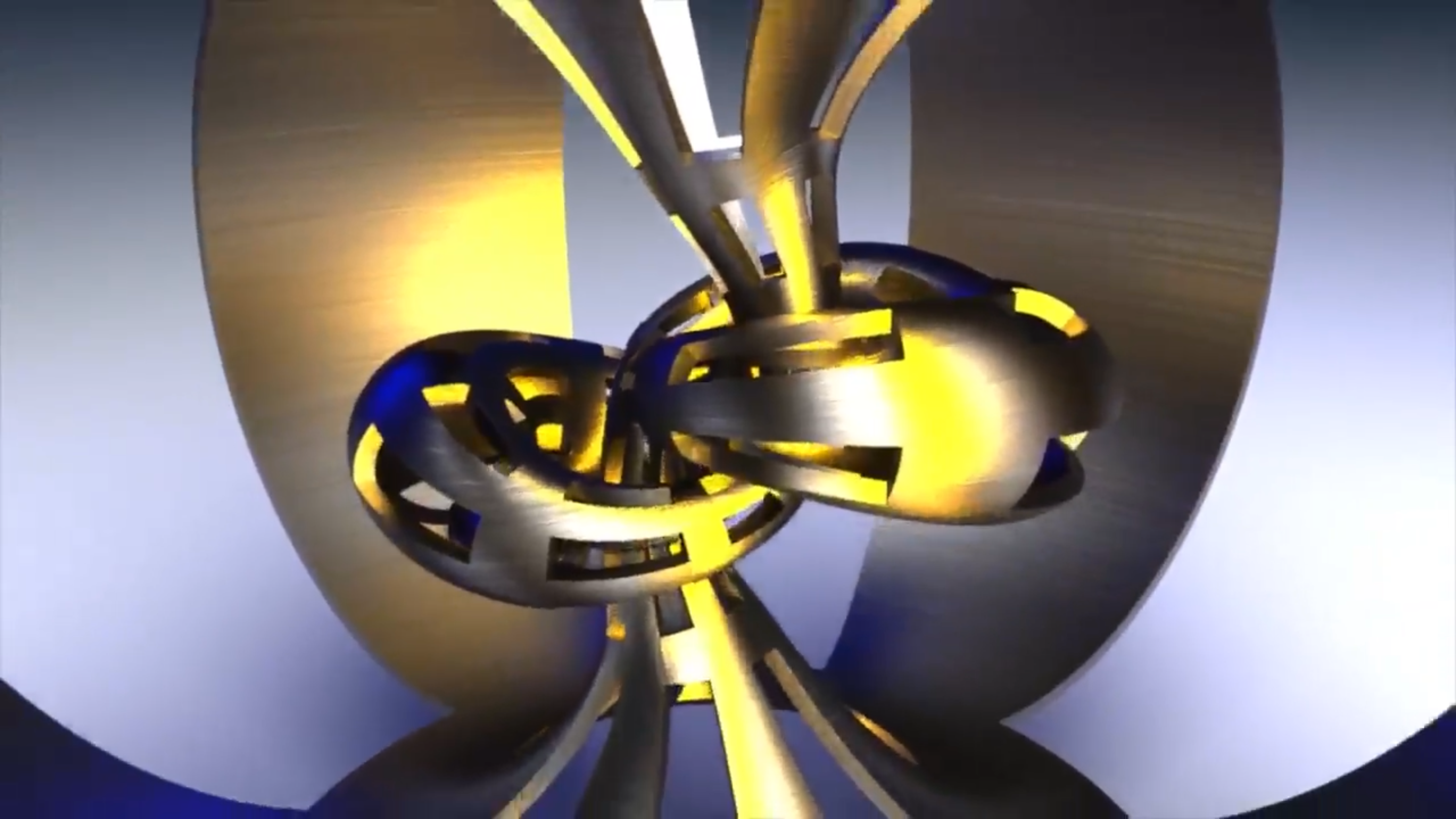The simplest self-persistent stage in topology is the hyperbolic figure eight knot. This topology is defined as a double-cover of the simplest possible 3–manifold ( the Gieseking Manifold ) defining the complement with the smallest possible volume.


Videos by Jeff Chapple, based on work by Henry Segerman.
The constructive equations for the hyperbolic figure eight knot volume and its real conjugate (defining the product of a unit sphere divided by 36, and a unit sphere divided by 8) are:
Where = the polylogarithm of order 2 ( the dilogarithm ),
= the imaginary unit,
= the imaginary golden ratio,
,
= Gieseking's constant for the minimum 3-manifold and
= Archimedes' constant.
These constructions pull apart into two dilogarithms, made of identical real and inverse imagainry parts.
Where = the gamma function.
Switching the arguments of that construction, from the imaginary golden ratio to the imaginary unit, yields twice Catalan's constant—.
These dilogarithm constructions naturally divide the world up into electron, proton, and neutron radii.
Where = the neutron radius,
= the classical electron radius, and
= the proton rms charge radius.
